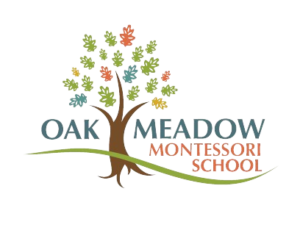Emotional intelligence and student success
In a survey of 22,000 high school students, more than 25% reported feeling “tired,” “stressed,” or “bored.”* Today, there is wide acceptance that social-emotional learning (SEL) is critically important in a student’s learning experience. Research conducted by the Yale Center for Emotional Intelligence, establishes a clear correlation between emotional intelligence (sometimes called EI) and learning, decision-making, academic success, and well-being.
 According to consultant Lynne Reeves Griffin, there are compelling reasons for us to understand student emotions, and help students develop the skills to recognize and manage their feelings. “Emotions do not exist in isolation–they impact our thinking and our actions. Emotions help us survive, thrive and avoid danger, motivate us to take action, help us make decisions, and allow us to understand others.”
According to consultant Lynne Reeves Griffin, there are compelling reasons for us to understand student emotions, and help students develop the skills to recognize and manage their feelings. “Emotions do not exist in isolation–they impact our thinking and our actions. Emotions help us survive, thrive and avoid danger, motivate us to take action, help us make decisions, and allow us to understand others.”
This week on Tuesday, teachers and staff at Oak Meadow spent a full professional development day with Lynne, deepening their understanding about how emotions shape thinking and actions, as well as developing practical strategies to support students in being more effective in developing their EI skills.
This professional development day launches the school’s new implementation of the Anchors Program created by the Yale Center for Emotional Intelligence. One of the anchors is called the “mood meter,” which allows students to self-assess and chart their emotions at any given point. The purpose is to help students better understand their mood, and if necessary, use strategies to regulate emotions in order to be more effective in school work or in social interaction with others.
 Another anchor is called “meta-moments,” which is grounded in neuroscience research. When a student feels triggered by an emotion, a meta-moment is a proactive strategy for regulating or managing that emotion before responding. In the face of challenging situations, students learn how to use personalized short-term and long-term strategies that help them regulate emotions, greatly improving the possibility of making better choices under stress which leads to achieving better outcomes.
Another anchor is called “meta-moments,” which is grounded in neuroscience research. When a student feels triggered by an emotion, a meta-moment is a proactive strategy for regulating or managing that emotion before responding. In the face of challenging situations, students learn how to use personalized short-term and long-term strategies that help them regulate emotions, greatly improving the possibility of making better choices under stress which leads to achieving better outcomes.
All of us on the faculty and staff are excited about the new Anchors Program. We see this as both a key differentiator in our existing program, as well as an aspirational goal to strengthen our own capacities. We look forward to sharing more details about the new program with parents in the coming months. We are also working on plans to have Lynne facilitate a parent education program about EI in the near future.
* USA Today, October 23, 2015





